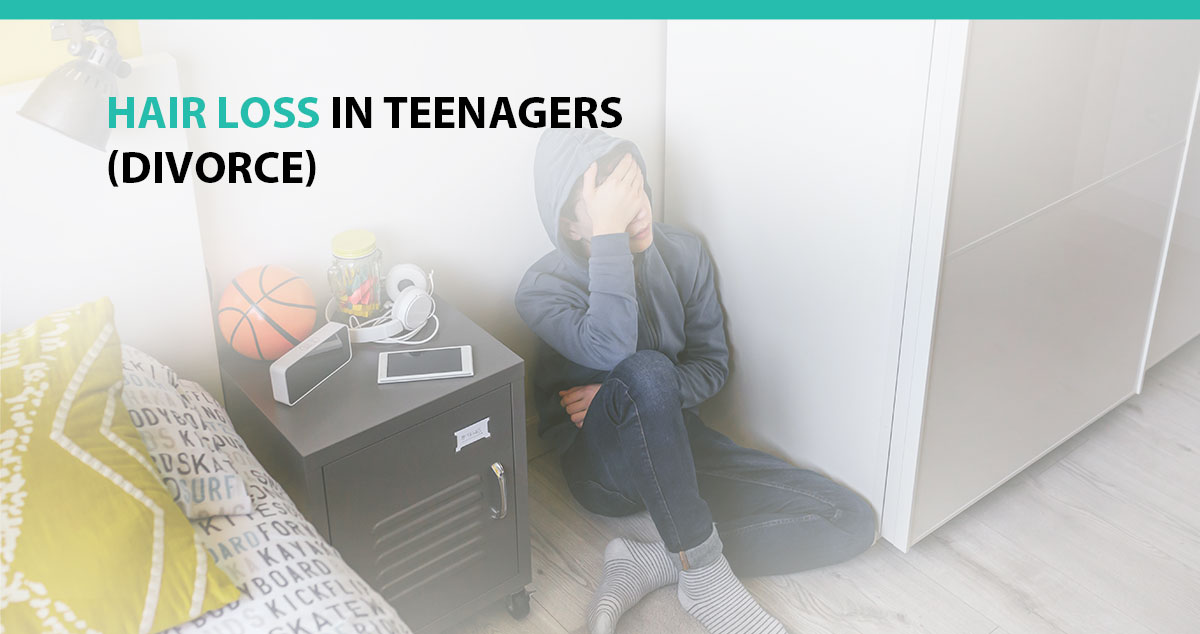
Kids go through enough troubling times as it is, without needing to worry about the nightmare stress of hair loss. While there are many triggers that can set it in motion, some of the more frequent stresses in a child’s life can come in the form of families breaking apart, severe illness, and even embarrassment or bullying.
Classmates Can Be Cruel
Keep in mind that most hair loss is caused by genetics, and the first signs that someone will be affected start to show in their late 20’s on average. While baldness or a receding hairline can begin even in the early 20’s, it can be particularly upsetting to a teenager or a younger child. Society has a long history of childhood trauma experienced by those of a school age. Most of us have at least one story of unbearable embarrassment because we looked different, couldn’t afford the cool toys, or wore funny clothes. And all of these reasons are outside a child’s control.
So when there are signs of a child’s hair falling out, it is advisable to act quickly to find its root cause. It’s essential to work closely with healthcare professionals to determine the best course of action. Open communication, emotional support, and a proactive approach can help both the child and parents manage and cope with hair loss effectively.
When Broken Happens
When we begin to look at causes, we will find that some causes are preventable and some are not. And depending on the circumstances, divorce falls into both of those. It can be a significant source of stress for children, and in some cases, prolonged and severe stress can potentially contribute to hair loss.
The stress associated with divorce can manifest in various ways in children, including emotional distress, anxiety, and changes in behavior. While hair loss due to divorce-related stress is relatively uncommon, it can occur, especially if the stress is severe and chronic.
Stress-induced hair loss in children is more likely to be a result of the emotional and psychological toll that the divorce process takes on them rather than a direct physiological response. Chronic stress can disrupt the normal hair growth cycle and lead to a condition known as telogen effluvium, in which a large number of hair follicles prematurely enter the resting phase (telogen) and eventually shed. Telogen effluvium is usually reversible once the underlying stressor is addressed and the child’s emotional well-being is restored. Until then, a child can react to the stress in several ways.
Hair pulling can result from a child expressing anger, depression, rebellion, or other signs of emotional distress. It can also show itself in the full-fledged form of a disorder known as trichotillomania, a compulsive hair-pulling disorder often associated with stress and anxiety. When this happens, a person feels powerless to stop the behavior. And if damage has been done to the hair follicles, it may take up to 4 years for the hair to regrow. 4 years to an adolescent can feel like an eternity to them.
It’s essential for parents going through a divorce to be aware of the potential impact on their children’s mental and emotional health. Providing emotional support, maintaining open communication, and seeking professional counseling or therapy if needed can help children cope with the stress associated with divorce and reduce the likelihood of experiencing adverse physical symptoms like hair loss.
At Least Agree on This
As part of any plan involving custody and visitation for the children, the parents should work towards the child’s best interest. This may include coming together on an agreed path for hygiene as well. One parent may be much better than the other at enforcing good habits in the child, like frequent tooth brushing and other hygiene like hair care. When the child is away from this parent, they may fall into bad habits that shape their adulthood permanently, so it is vital to be on the same page.
It’s important to consult with a healthcare professional or dermatologist to determine the underlying cause and receive appropriate treatment.
If you are concerned about your child’s reaction to a divorce and notice any signs of stress, it’s advisable to consult with a child psychologist or therapist who can provide guidance and support in addressing their emotional needs. Addressing the emotional well-being of children during and after a divorce is crucial for their overall health and development. Early intervention can often yield better long-term outcomes.
If you find that your teen is in need of services we provide here at Advanced Medical Hair Institute, just know that we are professionals and will treat the situation with both discretion and urgency.










